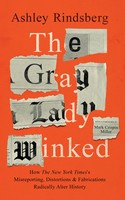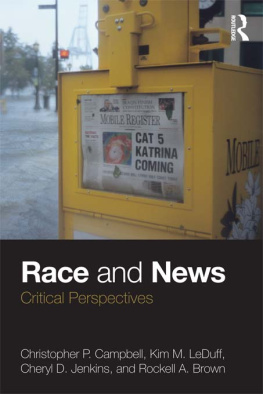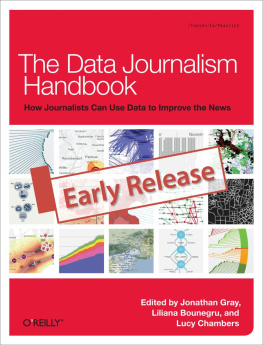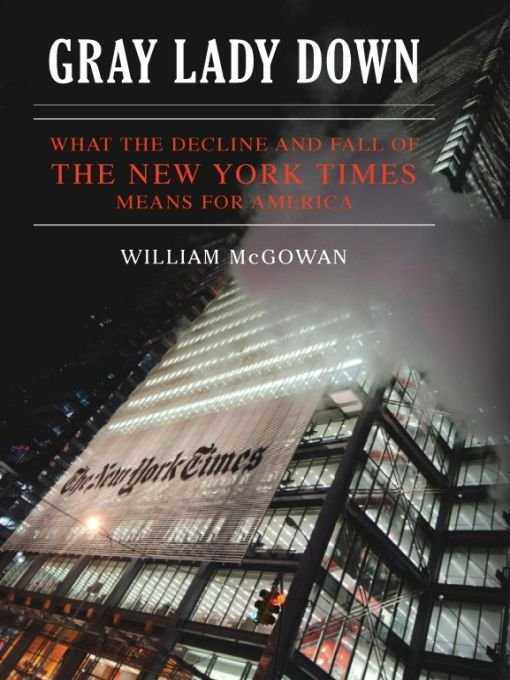Table of Contents
for Louise Salerno
Were the news standards of the Times more broadly emulated, the nation would be far better informed and more honorably served.
is it True What They Say About the New York Times? National Review, 1972
if you think The Times plays it down the middle on [divisive social issues], youve been reading the paper with your eyes closed.
Daniel Okrent, Times Public Editor, is The New York Times a Liberal Newspaper? 2004
Prologue
I am not one of those people who love to hate the Times, as the papers executive editor Bill Keller has phrased it. Ive read the New York Times since I was a kid, and I am proud to have been published prominently in it very early in my career. (The first things I ever published appeared in the Times Magazine and on the op-ed page.) I still consider the Times an important national resource, albeit an endangered one, and I confess to being one of those New Yorkers who refer to it simply as the paper. Pre-Internet, I would find myself wandering to the corner newsstand late at night and waiting like a junkie for a fix in the form of the next days edition. If I was out of town and couldnt find it, I would jones.
But sadly, those days, that young man and that New York Times are long gone.
My aim is not to embarrass the Times or to feed a case for going Timesless, as some subscription cancellers and former readers have called it. Some may think the Times to be irrelevant in this age of media hyperchoice. I think its actually more necessary than ever. But if These Times Demand The Times, as the papers advertising slogan goes, they also demand a better Times than the one we are getting, especially at this fraught point in our political, social and cultural history.
William McGowan
The Writers Room
New York City
September 2010
one
Abe Rosenthal and the Golden Age
Back in the seventies, during an alarming downturn in stock price, advertising sales, revenue and circulation at the New York Times, the famed executive editor A. M. (Abe) Rosenthal confessed to having a recurrent nightmare: It was an ordinary Wednesday morning and there was no New York Times. Rosenthal outlived his nightmare. Along with the publisher, Arthur Ochs Sulzberger, and a group of skillful news executives, he put the paper back into the black. In the process, this team revolutionized the way the paper reported the news and set an example that transformed newspaper journalism in the rest of the country.
Rosenthal retired from the executive editor position in 1986 and then wrote a twice-weekly column on the op-ed page until 1999. Along with James Reston and a handful of others, he is identified with the New York Times golden age, a time when the paper spoke toand forthe nation. In May 2006, Rosenthal died after a massive stroke at the age of eighty-four. He had worked fifty-three years for the Times, after coming aboard as a copyboy in 1946 in his early twenties.
Rosenthals death prompted a weeks worth of published tributes and flattering obituaries, describing how, as his Times obituary put it, he climbed on rungs of talent, drive and ambition to the highest echelons of the Times and American journalism. The salutes culminated in the passionate eulogies delivered at his funeral, held at Central Synagogue in Manhattan. An estimated eight hundred people attended the service, representing a Whos Who of New Yorks business, media, political and cultural elite, including figures as diverse as Mike Wallace, Walter Cronkite, Beverly Sills, Charlie Rose, Midge Decter and Rudy Giuliani. The honorary pallbearers were led by the former mayor Ed Koch and William F. Buckley Jr. They were followed by a half-dozen men who had worked with Rosenthal at the Times, including his former boss, Arthur O. Sulzberger. That week, Buckley had hailed Rosenthal as the commanding figure in the evolution of serious daily journalism, which he had influenced as decisively, in Buckleys opinion, as William Randolph Hearst had the tabloids, and Henry Luce the weekly newsmagazines. Sulzberger, by then the former publisher, had told the New York Sun that It was the golden age of journalism when Abe was at the Times.
Some of the tributes focused on Rosenthals impoverished and tragic background. He was the son of a Byelorussian immigrant who became a Canadian fur trapper before coming to America to work as a housepainter. Abes father died after falling off a ladder, four of his five sisters passed away before he was an adult, and Abe himself was afflicted with osteomyelitis, a rare bone disorder. The medical care he received was substandard. At one point an operation was performed on the wrong part of his leg, and as he was lying in a full body cast he was told that he would never walk again. It was only after being admitted to the Mayo Clinic as a charity case that he recovered, but he still experienced lifelong pain.
Other tributes focused on his remarkable career trajectory. Beginning as the Times stringer at New Yorks City College, he was formally hired as a copyboy without even graduating. He was a reporter for nineteen years, covering the fledgling United Nations before becoming a foreign correspondent in 1955, assigned to cover India, Japan and Poland. He was expelled from Poland for reporting that was too probing for the Communist government there, and won the Pulitzer Prize in 1960 for international reporting. In 1963 he returned to New York to assume a new title, metropolitan editor. From there he climbed up the editorial hierarchy, becoming assistant managing editor, managing editor and finally executive editor of the entire paper in 1977.
Although a fierce protector of Times tradition, Rosenthal shook up the Metro staff, encouraging better, brighter writing from talented reporters like Gay Talese and rotating beat assignments that had previously been regarded as set in stone. He emphasized investigative reporting and broke precedent by assigning trend stories on controversial subjects like interracial marriage and homosexuality. Believing he had suffered some measure of career bias as a result of anti-Semitism, he upended the informal caste system at the Times, which had traditionally favored Ivy League WASPs over New York-bred Italians, Irish and Jews.
As executive editor, Rosenthal steered the Times through the coverage of the Vietnam War, the rise of the counterculture, the Watergate scandal and various Mideast crises. He played a central role in the decision to publish the Pentagon Papers in 1971, bucking up Sulzberger and other executives who feared that printing the governments own classified history of U.S. involvement in Vietnam would appear to the public as treasonous, expose the papers executives to federal prosecution, and lead to financial ruin. Rosenthal himself was not a dove; at his funeral, his son recalled him putting on a cowboy hat at home and singing Im proud to be an Okie from Muskogee. But as a Times editorial after his death noted, he believed that when something important is going on, silence is a lie.
Many of the tributes dwelled on Rosenthals role in rescuing the paper from financial peril and journalistic irrelevance in an age when television was killing off newspapers right and left, which was just as important as the big-ticket news stories he shepherded. Facing declines in ad revenue and circulation, as well as charges that the papers writing was dull, Rosenthal spearheaded efforts to broaden the papers appeal and liven up its pages. The result was the Sectional Revolution, expanding the daily paper from two sections to four, which encouraged a rebound in circulation along with ad sales and revenues.







